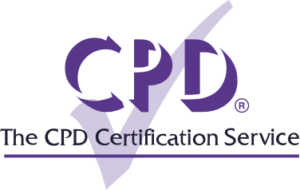In this Pharmacists CPD Guide
Why do Pharmacists need CPD?

A pharmacist is a healthcare professional who specialises in the preparation and dispensing of medications. They work in pharmacies, hospitals and other healthcare settings to ensure that patients receive safe and effective medications. Pharmacists play a crucial role in patient care by ensuring that medications are prescribed and dispensed safely, accurately and appropriately. They also provide advice and counselling to patients on how to use their medications effectively to improve health outcomes.
To become a pharmacist, you need to complete a four-year Master of Pharmacy (MPharm) degree programme accredited by the General Pharmaceutical Council (GPhC), undertake one-year pre-registration training in a community or hospital pharmacy, and pass the GPhC registration assessment.
What our customers have to say
Dan King
Mobilisation, Training & Performance Manager

Sophie Aiken
HR Manager

Harriet Lee
Retail Recruitment Manager

What CPD courses do Pharmacists need?
Pharmacists are required to have a range of knowledge about health conditions and medications to help them in their prescribing role.
Our top pick of CPD courses for pharmacists include:
Suicide Awareness – This course is aimed to help you recognise and increase your knowledge of suicide. You will explore what suicide is, including the myths, signs and symptoms.
Administering Medication – This course will give you vital knowledge on how to correctly store, administer and dispose of medication in line with government legislation and guidelines. Various types of medication and methods of administration are also covered. This is central to the pharmacist role.
Adolescent Mental Health – This course will explore types of mental health problems and the signs of each of them. It will explore disorders and issues that are prominent in this age group and how they should be supported. Possible treatments will also be considered.
Anaphylaxis Awareness – As a pharmacist you may meet customers who are having an allergic reaction to something. This course will go into detail about the types of allergic reactions and how to recognise a reaction early in the process, and the importance of recognising an anaphylactic reaction as quickly as possible.
Anxiety Awareness – This course is perfect for anyone that works in a mental health role or is in a position where people they work with may suffer from anxiety. This course is also great for people who suffer from anxiety themselves.
Autism Awareness – The course covers the potential causes of autism and the misconceptions that people have about the causes and the medication that can be used to help people manage their symptoms (including the side effects of these).
Customer Service in Health and Social Care – In this course, you will learn the importance and benefits of customer service in both health and social care settings. You will also learn about the expectations of the Care Quality Commission (CQC) and the NHS in regard to customer service in the health and social care sector.
Depression Awareness – This course is designed to give you a better understanding of what depression is and how it is treated. The signs and symptoms of depression will be covered, as well as common methods of treatment.
Dementia Awareness – This course will help carers, family members and those living with dementia be able to diagnose, treat and live with dementia to ensure quality of life is always central in a care plan.
Diabetes Awareness – This course will enable you to improve your understanding of diabetes and raise awareness of the condition. This will include what diabetes is, the two types of diabetes, how diabetes is managed and the complications that can arise from diabetes. You will also learn how those living with diabetes can be supported.
Drugs and Alcohol Awareness – Drugs and alcohol can be especially dangerous when mixed with prescription medication. In this course you will explore the types of drug abuse and who is more at risk of developing an addiction, and you will also explore the effects of misusing drugs.
End-of-Life Care – This course will help you to gain a better knowledge of the policy which underpins end-of-life care. It will help you to learn about the delivery of great end-of-life care and improve your communication skills to strengthen working relationships during this period.
Substance Misuse Awareness – In this course, you will gain a detailed insight into how substance misuse disorders impact someone’s life, as well as into the particularities that make someone vulnerable. This is important for pharmacists to identify if somebody is abusing their medication.
Download our CPD trackerA guide to CPD for Pharmacists
Pharmacists are regulated by the General Pharmaceutical Council (GPhC). Continuing professional development (CPD) is a requirement for all registered pharmacists, and they must complete a minimum of 30 hours of CPD every year to maintain their registration. CPD training can include research, conferences and online learning modules such as those from the CPD Online College.
CPD certificates
After all of your hard work working through our CPD courses you will be provided with a certificate to acknowledge that you have successfully completed the course. This will be available for you to download as soon as you have passed our end of course quiz questions, which test your knowledge of the course content to ensure that you have grasped the learning. Having a quiz at the end also helps to boost your confidence, certifying that you are more competent in your new subject area. CPD certificates are important because they serve as proof that you have completed the CPD training. You should download your certificate and keep it safe in case any employers or regulators require evidence of you completing this.
Logging CPD hours
The time that our students spend working through our CPD courses can vary. Some people are quicker learners and may only require a few hours, whereas others may prefer to work through the course content slower and may have multiple sessions working through the course. Either way is fine because we have no time limits on our courses. There is also the ability to save your session and return to this when you next log in. Although there is no time limit, we advise that you track the amount of time that you spend on your course to add to your log of CPD hours. As well as time spend on your CPD course, you should also log the time spent on any other types of CPD training.
Keeping evidence
Your course certificate can be used as a piece of CPD evidence, along with your log of CPD hours. Evidence of your CPD training is extremely important as many employers and regulators of pharmacists require staff to submit proof of their CPD. You can create a portfolio of your CPD evidence as a hard copy, or an electronic version, which you can refer back to or pass on to employers.
Some other types of CPD training that can be included are:
- Job shadowing.
- Individual research.
- Keeping abreast of updated laws and regulations.
- Webinars.
- Conferences.
Renewing CPD certificates
Your CPD certificate should be renewed in your chosen topic area to keep up to date with the latest industry news, laws, regulations and knowledge. This is especially important in the pharmacy field where the safety of patients is crucial. Pharmacists should always be practising using the latest developments in their field, so CPD certificates should be renewed at least every two years to meet this. This will ensure patient safety, as well as providing the best information and advice in healthcare.
























